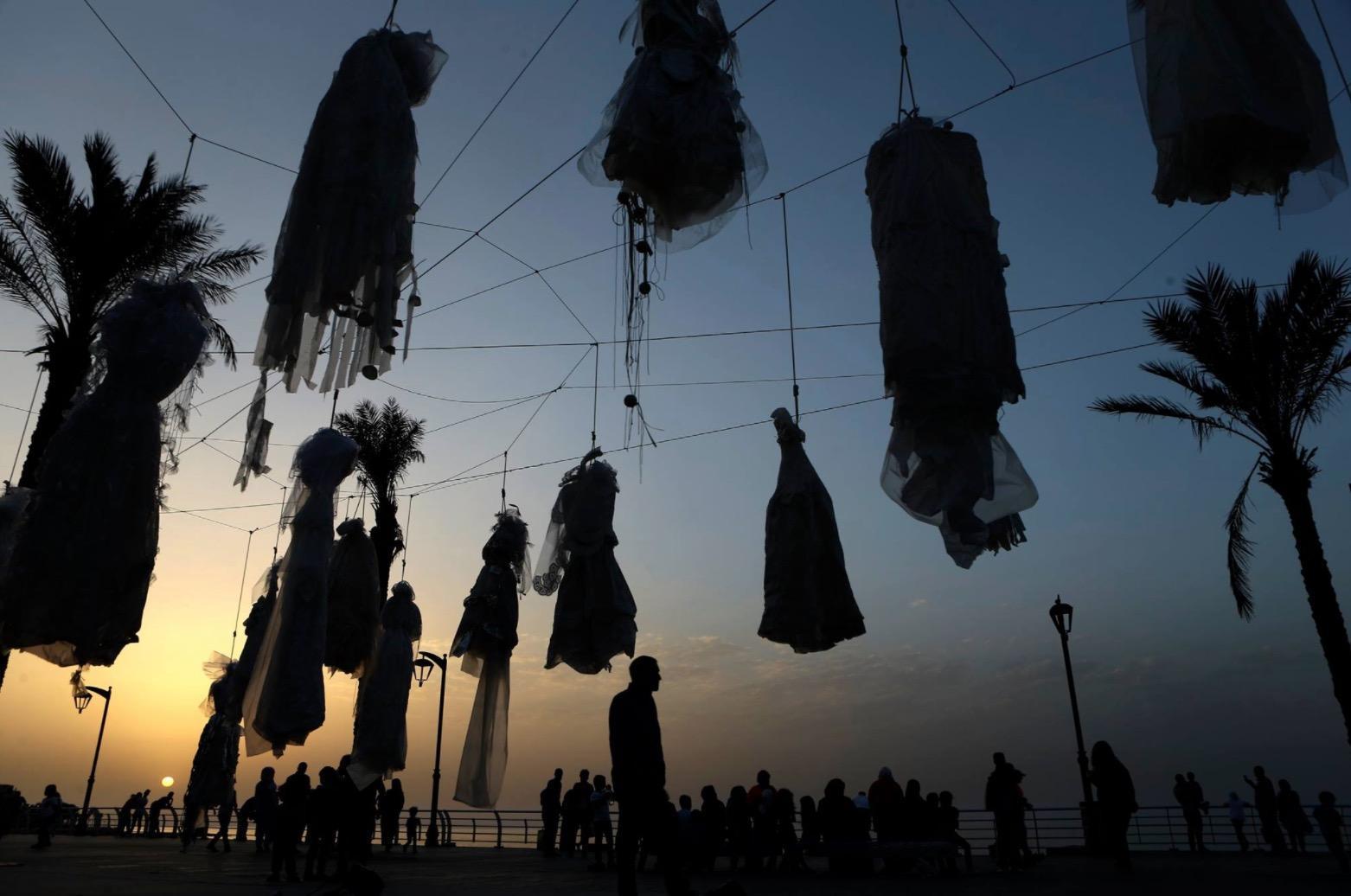Lebanese women hang eerie wedding dresses from Beirut seafront in rape law protest
A parliamentary committee has voted to abolish archaic legislation but activists step up pressure ahead of 15 May vote

Your support helps us to tell the story
From reproductive rights to climate change to Big Tech, The Independent is on the ground when the story is developing. Whether it's investigating the financials of Elon Musk's pro-Trump PAC or producing our latest documentary, 'The A Word', which shines a light on the American women fighting for reproductive rights, we know how important it is to parse out the facts from the messaging.
At such a critical moment in US history, we need reporters on the ground. Your donation allows us to keep sending journalists to speak to both sides of the story.
The Independent is trusted by Americans across the entire political spectrum. And unlike many other quality news outlets, we choose not to lock Americans out of our reporting and analysis with paywalls. We believe quality journalism should be available to everyone, paid for by those who can afford it.
Your support makes all the difference.Activists campaigning to get Lebanon to abolish an old law that allows rapists to escape punishment for their crimes as long as they marry the survivor have staged a powerful protest on Beirut’s Corniche.
Thirty-one wedding dresses representing each day of the month in which women could be subject to further abuse by attackers who marry them were strung up on the Lebanese capital’s famous seafront to draw attention to Article 522 of the law addressing rape, assault and forced marriage.
Swaying in the breeze between the palms, they looked like corpses. Abaad – a Lebanese charity focused on women’s rights and helping domestic abuse survivors – staged a similar protest last December, in which women wearing wedding dresses and bandages splattered with red paint demonstrated outside parliament.
Article 522 is a statute from the 1940s. Under current laws rape is punishable by up to seven years in prison. The penalty for raping a minor or someone with mental or physical disabilities is higher – but the article under scrutiny creates a loophole that allows criminal prosecution to be suspended if the two people involved get married.
Lebanon’s diverse Christian and Muslim political representatives were somewhat energised by the election of a president in November 2016 after a more than two-year-long paralysis, which meant legislation could not be passed.
In February, a parliamentary committee voted to scrap Article 522, and activists remain hopeful representatives will abolish it in an upcoming vote on 15 May.
Lebanon’s newly-appointed Minister for Women’s Affairs, Jean Oghassabian, was present at the protest. He described the current law as “stone age”.
Similar marriage clauses are present in the law regarding sexual consent in many modern Muslim states. They are usually hangovers from interpretations of sharia, or religious law.
In recent years, such loopholes have come under under intensified scrutiny, with protests aimed at getting the law changed in several countries across the Middle East – although Turkey abandoned attempts last year to pass a law that would have allowed men who had sex with underage children to be pardoned if they married the victim after the proposed legislation caused outrage both within the country and internationally.
Morocco, Egypt and Ethiopia have closed similar legislative loopholes in the last few years, and changes to the law are pending in Jordan and Bahrain.
Rape and sexual abuse affect nearly one billion women and girls over their lifetimes, UN data says.
Join our commenting forum
Join thought-provoking conversations, follow other Independent readers and see their replies
Comments